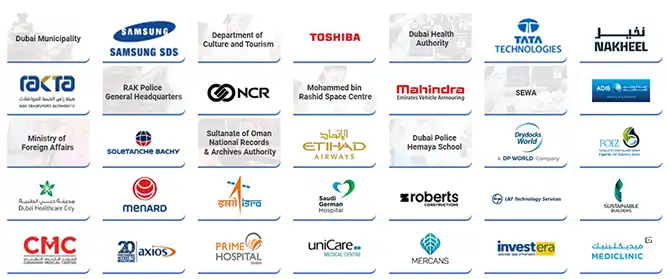ISO Certification in Malaysia
ISO certification plays a vital role in enhancing the quality and productivity of businesses in Malaysia. The International Organization for Standardization (ISO) establishes globally recognized standards that ensure products, services, and processes meet required benchmarks for quality. Obtaining ISO certification demonstrates a company's dedication to delivering high-quality offerings, improving customer satisfaction, and adhering to industry regulations. In Malaysia, ISO certification is increasingly popular among businesses seeking to showcase their commitment to global standards and gain a competitive advantage. Additionally, ISO certification enables businesses to expand internationally by meeting the requirements of global clients and establishing trust in their capabilities. Ultimately, ISO certification serves as both a symbol of credibility and excellence and a strategic tool for business growth.
Why select us for ISO Certification in Malaysia?
Choosing us as your ISO Certification provider in Malaysia is a smart move for several reasons. Firstly, we have a proven track record of successfully guiding organizations through the ISO certification process. Our team consists of highly knowledgeable and experienced experts who excel at implementing ISO standards and ensuring compliance. Secondly, we understand the unique challenges and requirements faced by organizations operating in Malaysia, allowing us to offer tailored solutions that meet your specific needs. Moreover, our certification process is streamlined and efficient, minimizing any disruptions to your business operations. We also provide continuous support and guidance post-certification, ensuring ongoing compliance for your organization. Lastly, our exceptional reputation for delivering quality services and our unwavering commitment to customer satisfaction set us apart from other certification bodies in Malaysia.
Process of ISO Certification in Malaysia:
The process of ISO Certification typically involves many steps. Here is a general overview of the ISO process:

Benefits of ISO Certification in Malaysia
ISO Certification offers several benefits to organizations. Some of the key advantages include:
- Enhancing credibility and establishing a strong reputation in the industry.
- Elevating quality standards and ensuring customer satisfaction.
- Expanding market opportunities and reaching new customers.
- Boosting operational efficiency and streamlining processes.
- Ensuring compliance with regulatory requirements and standards.
- Strengthening risk management capabilities and minimizing potential risks.
- Increasing employee engagement and motivation by demonstrating a commitment to excellence.
- Reducing costs through improved efficiency and effectiveness.
When considering ISO certification, it is crucial to carefully evaluate the potential benefits based on the specific standard chosen, as well as the organization's unique context and business sector. The actual benefits may vary significantly depending on these factors.
Requirements to get ISO Certification in Malaysia
To obtain ISO Certification, organizations need to fulfil specific requirements. Here are some key points to consider:
- Select the appropriate ISO standard that is relevant to your organization.
- Implement a comprehensive management system that aligns with the chosen ISO standard.
- Document all pertinent information related to your management system and its implementation.
- Conduct regular internal audits to ensure compliance and identify areas for improvement.
- Take corrective actions whenever deviations or non-conformities are identified during audits.
- Undertake periodic management reviews to assess the effectiveness of your ISO implementation and make necessary adjustments.
- Choose an accredited certification body that can provide reliable certification services.
It's important to note that the specific requirements and processes may vary depending on the chosen ISO standard and the certification body involved.
FAQ for ISO Certification in Malaysia
1. How can I get an ISO Certification in Malaysia?
ISO certification can be advantageous for businesses. The process includes choosing a suitable standard, establishing policies and procedures, conducting internal audits, undergoing evaluation by an independent third-party agency, and participating in regular assessments to uphold certification. By achieving ISO certification, companies can demonstrate their commitment to quality management and enhance their reputation in the market.
2. What is the role of a certification body in the ISO certification process?
The evaluation of your organization's quality management system is conducted through a certification audit performed by a certification body. If your organization meets the required standards, the ISO certification will be issued by the certification body.
3. How to Apply for ISO Certification in Malaysia?
Obtaining ISO Certification is highly beneficial for organizations in Malaysia as it guarantees compliance with international standards. This certification procedure results in improved quality management systems and operational efficacy. To initiate the process, businesses must approach an authorized and accredited service provider based within the country. In Malaysia, certified service providers are available at the following designated locations:
Email: admin@gabrielregistrar.com
Phone: +971-56-5773585
4. Who Needs ISO Certification in Malaysia?
ISO certification provides numerous benefits to organizations in various industries in Malaysia. Depending on the sector, different ISO standards can be pursued. For manufacturing, ISO 9001 is a suitable choice, while service providers have the option of ISO 9001 or ISO 20000. Construction companies can aim for ISO 9001 certification, and those in the food industry may consider pursuing ISO 22000. To ensure information security, ISO 27001 is recommended, while environmental sustainability can be achieved through ISO 14001. Finally, employee safety and well-being can be prioritized with ISO 45001. These certifications serve as a testament to an organization's dedication to quality, integrity, and professionalism within their respective fields.
5. What is the validity of the ISO Certification in Malaysia?
ISO certifications in Malaysia, like other countries, have a validity period of three years. To preserve certification, organizations must consistently comply with ISO standards and actively pursue continuous process improvement. Certification bodies conduct surveillance audits to evaluate ongoing compliance and renew the organization's certification after each three-year cycle. The recertification process involves assessing the organization's Quality Management System (QMS) and verifying its adherence to ISO standards.
6. What is the validity of the ISO 9001 (QMS) Certification in Malaysia?
ISO certifications in Malaysia, as with other countries, have a validity period of three years. To maintain certification, organizations must consistently adhere to ISO standards and continually improve their processes. To assess ongoing compliance and reissue the certification at the end of the three-year cycle, certification bodies conduct surveillance audits. Throughout the recertification process, the organization's Quality Management System (QMS) undergoes evaluation to ensure its adherence to ISO standards.
7. What is the cost of ISO Certification in Malaysia?
The cost of ISO Certification can vary based on several factors. These include the size and complexity of the organization, the specific ISO standard being pursued, and the certification body that is chosen. It's important to consider that additional services may also have an impact on the overall cost.
8. How do I start the ISO certification process in Malaysia?
To initiate the certification process in Malaysia, it is advisable to select a well-regarded certification body, also referred to as a registrar or certification agency. This entity will offer invaluable guidance and assistance throughout your certification expedition.
9. Why should my business in Malaysia consider ISO Certification?
Acquiring ISO certification is an excellent way to demonstrate your commitment to upholding superior quality standards and prioritizing customer satisfaction. It not only boosts your reputation, but also broadens your opportunities for expanding into new business endeavours. Moreover, ISO certification frequently serves as a prerequisite for securing government contracts.
10. Can small businesses in Malaysia obtain ISO 9001 (QMS) Quality Management certification?
ISO 9001 Quality Management System (QMS) certification is accessible to companies of all sizes, including small enterprises. There are standards specifically designed to meet the unique needs of smaller businesses, allowing them to take full advantage of the benefits of certification.


